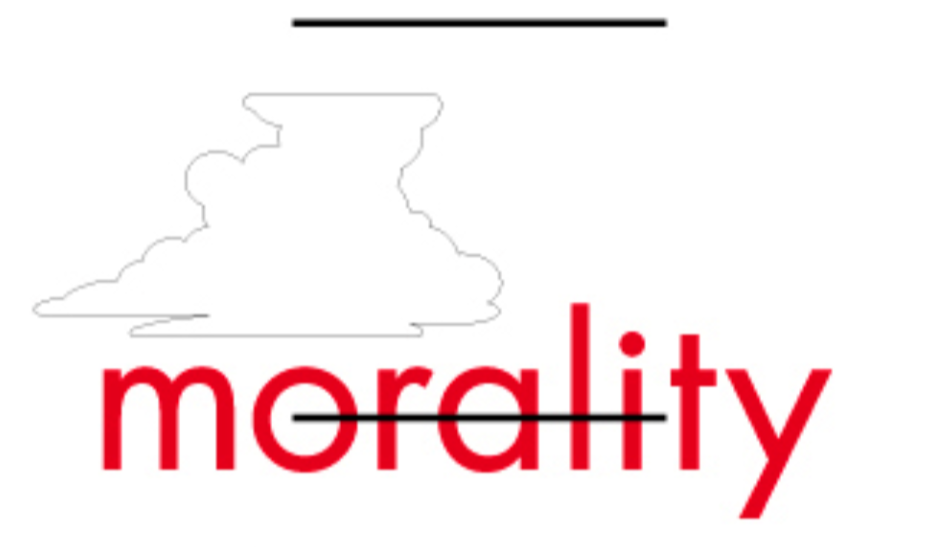Morality in Flux
In an era marked by rapid societal transformations and shifting cultural norms, the question of morality looms large. Are morals still fashionable? More importantly, are they societal or personal responsibilities? The landscape of morality appears fractured, with institutions like churches often criticized for their silence amidst moral decay. As the younger generation grapples with an array of challenges, from corruption to ethical dilemmas, the debate intensifies on whether morality is an individual affair or a collective duty.
The fabric of society is undeniably woven with moral threads. Yet, the patterns of ethical behavior seem increasingly blurred in today's world. Traditional institutions once considered guardians of morality, such as churches, often find themselves on the periphery of discussions on contemporary moral issues. Meanwhile, societal norms evolve at a dizzying pace, leaving individuals to navigate a moral landscape that seems to shift beneath their feet.
At the heart of this debate lies the question of agency: who bears the responsibility for upholding moral standards? Is it the individual's duty to adhere to a personal code of ethics, or does society at large hold a collective obligation to foster a culture of moral integrity?
Proponents of the personal responsibility viewpoint argue that morality is fundamentally an individual affair. Each person possesses autonomy and agency, capable of discerning right from wrong and acting accordingly. In this view, moral decisions are deeply personal, guided by internal values and beliefs rather than external influences. Advocates of this perspective emphasize the importance of personal accountability, asserting that individuals must take ownership of their actions and their consequences.
The societal responsibility camp contends that morality is not solely the domain of individuals but also a collective endeavor. Society shapes and reinforces moral norms through its institutions, cultural practices, and shared values. As such, maintaining a moral fabric requires active engagement from all members of society, not just isolated acts of individual conscience. Proponents of this viewpoint stress the role of community and social cohesion in fostering a culture of ethics, highlighting the interconnectedness of individuals within the broader context of society.
The current concern presents a complex interplay between personal and societal responsibilities. As older generations grapple with accusations of corruption and moral lapses, the burden falls on the younger generation to navigate an increasingly fraught ethical terrain. Yet, amidst the clamor of societal upheaval, the question remains: do today's youth have the necessary guidance to cultivate moral integrity?
The role of intergenerational mentorship and guidance cannot be overstated in shaping moral character. The traditional avenues of moral instruction, such as family and religious institutions, have come under scrutiny in recent years. The breakdown of familial structures, coupled with declining religious participation among younger demographics, has left many youth adrift in a sea of moral ambiguity.
The pervasive influence of technology and social media has introduced unprecedented challenges to moral development. The digital age offers a platform for both constructive dialogue and moral degradation, amplifying voices of wisdom and dissent in equal measure. As such, the youth of today must navigate a virtual landscape fraught with ethical pitfalls, often without the guidance of their elders.
In the present age, the debate over the locus of moral responsibility takes on renewed urgency. While personal autonomy remains paramount, society must also shoulder its share of the burden in fostering an environment conducive to moral growth. Institutions, both traditional and contemporary, must reevaluate their roles in shaping moral discourse and providing guidance to the next generation.
Finally, the question of whether morals are still fashionable is less about trends and more about enduring principles. In a world beset by uncertainty and moral ambiguity, the need for ethical clarity has never been greater. Whether through individual conscience or collective action, the preservation of moral integrity remains an imperative for society at large.
In conclusion, the debate over the nature of morality—whether it is a personal or societal responsibility—resists easy answers. Both perspectives offer valuable insights into the complex dynamics of moral decision-making. Yet, in a world marked by rapid change and moral uncertainty, the synthesis of personal agency and collective responsibility emerges as a compelling framework for navigating the moral challenges of our time. As we confront the complexities of a rapidly evolving society, the imperative to uphold moral integrity remains steadfast, demanding a concerted effort from individuals and society alike.




Comments
Post a Comment